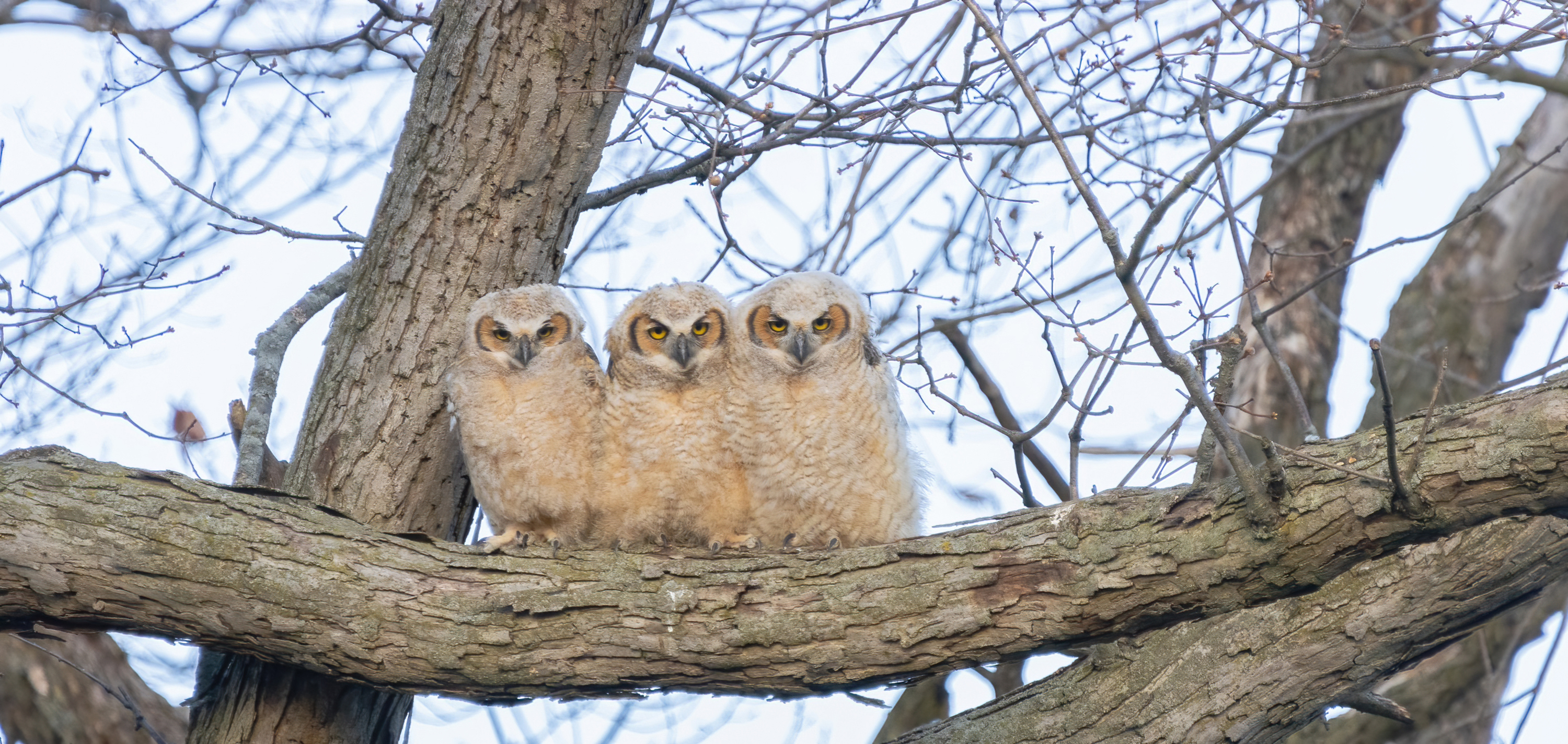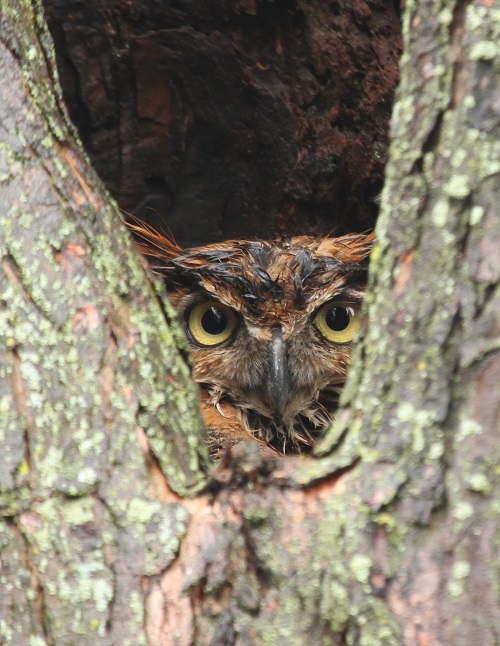The WSO Code of Ethics encourages birders to protect wildlife, the natural environment, and the rights of others through a set of guidelines. Recent debates over posting rare bird locations, baiting, and the general question of harassment caused WSO to update these guidelines and address those concerns. Our hope is that this revised Code of Ethics helps the Wisconsin birding community make better-informed decisions while in the field, and promotes stewardship of Wisconsin birds.
In addition to our Code of Ethics, WSO has developed a 10-minute educational video that discusses the considerations that should be taken when viewing owls.
Download a PDF of the WSO Code of Ethics.
- When birding, we should act in ways that do not endanger the welfare of birds and other wildlife. We should:
- Avoid chasing or repeatedly flushing birds. Even though it may be unintentional on your part, the outcome may be harassment.
- Observe birds from a safe distance by using binoculars and spotting scopes. If the animal shows signs of stress, then you are too close and should back away.
- Use appropriate lenses to photograph, such as telephoto lenses or digiscoping. If an animal shows stress, move back and use a longer lens.
- Learn to recognize signs of stress. This will vary between species but may include agitated flapping, alarm calls or frequent vocalizations, cessation of normal activities, aggression, or flushing. Owls will frequently “slim down” (i.e., look skinny or branch-like) when stressed.
- Limit use of recordings and similar methods of attracting birds, especially in heavily birded areas or known locations of rare birds.
- Keep an appropriate distance from nests and nesting colonies so as not to disturb them or expose them to danger.
- Refrain from handling birds or eggs unless engaged in recognized research activities.
- Birders should take special considerations when observing or photographing raptors, owls, and rare birds. We should:
- Evaluate the potential for disturbance to the bird, its surroundings, and other people in the area before advertising the presence of a rare bird. Proceed only if access can be controlled, disturbance minimized, and permission has been obtained from private landowners. The sites of rare nesting birds should be divulged only to the proper conservation authorities.
- Minimize cumulative impacts on an individual bird. Remember that you are unlikely to be the only observer of this animal. If the animal shows signs of stress, back away.
- Refrain from providing mice or in any way baiting raptors or owls. Baiting may transmit disease to the bird, or cause the bird to approach roadsides when people come nearby.
- Be a steward of an owl roost and take precaution in publicly advertising its location. Supply data to eBird after the roost is abandoned.
- Birders should act in ways that minimize adverse effects to the environment. We should:
- Stay on existing roads, trails, and pathways whenever possible to avoid trampling or otherwise disturbing fragile habitats.
- Leave all habitats in as good a condition as we found them or better.
- Birders should respect the rights of others. We should:
- Practice common courtesy in contacts with other people. Behave in a manner that will generate goodwill with birders and non- birders alike.
- Obtain permission to enter private property, whether posted or not.
- Follow posted rules on public and private properties.
- Observe all laws, rules, and regulations for public and private birding areas (including paying applicable fees), and report violations to the appropriate authorities.
- Leave gates and fences as found and rights-of-way unblocked.
- Limit requests for permission or information to reasonable times of the day.
- Read Landowners and Birders at wsobirds.org.
- Birders in groups have special responsibilities. As group members, we should:
- Act in consideration of the group’s interest as well as our own.
- Use care when gathering in groups near roadsides. Do not block the road with your vehicles, minimize door slamming and other loud noises, and watch for oncoming traffic.
- Support the leader of the group. As group leaders, we should:
- Assume responsibility for the conduct of the group.
- Limit group size so as not to threaten the environment.
- Teach others birding ethics by word and example.
- Birders recognize the importance of research projects to further our knowledge about birds. We should:
- Encourage field researchers to conduct their work in ways that do not endanger the welfare of birds and that minimize adverse effects to the environment.
- Not knowingly interfere with research projects.
- Birders should alert the proper authorities of any illegal activities involving wild birds.
- The Endangered Species Act (ESA) protects all species that are federally listed as endangered or threatened. It is illegal to harass, harm, pursue, hunt, shoot, wound, kill, trap, capture, or collect any listed animal.
- The Migratory Bird Treaty Act makes it illegal for anyone to take, possess, import, export, transport, sell, purchase, or barter any migratory bird, or the parts, nests or eggs of such a bird except under the terms of a valid permit issued pursuant to Federal regulations.
- Violators of either Act should be reported to:
- Wisconsin DNR violation hotline: 800-847-9367; le.hotline@wisconsin.gov
- U.S. Fish and Wildlife Service Region 3: 612-713-5436; permitsR3MB@fws.gov

